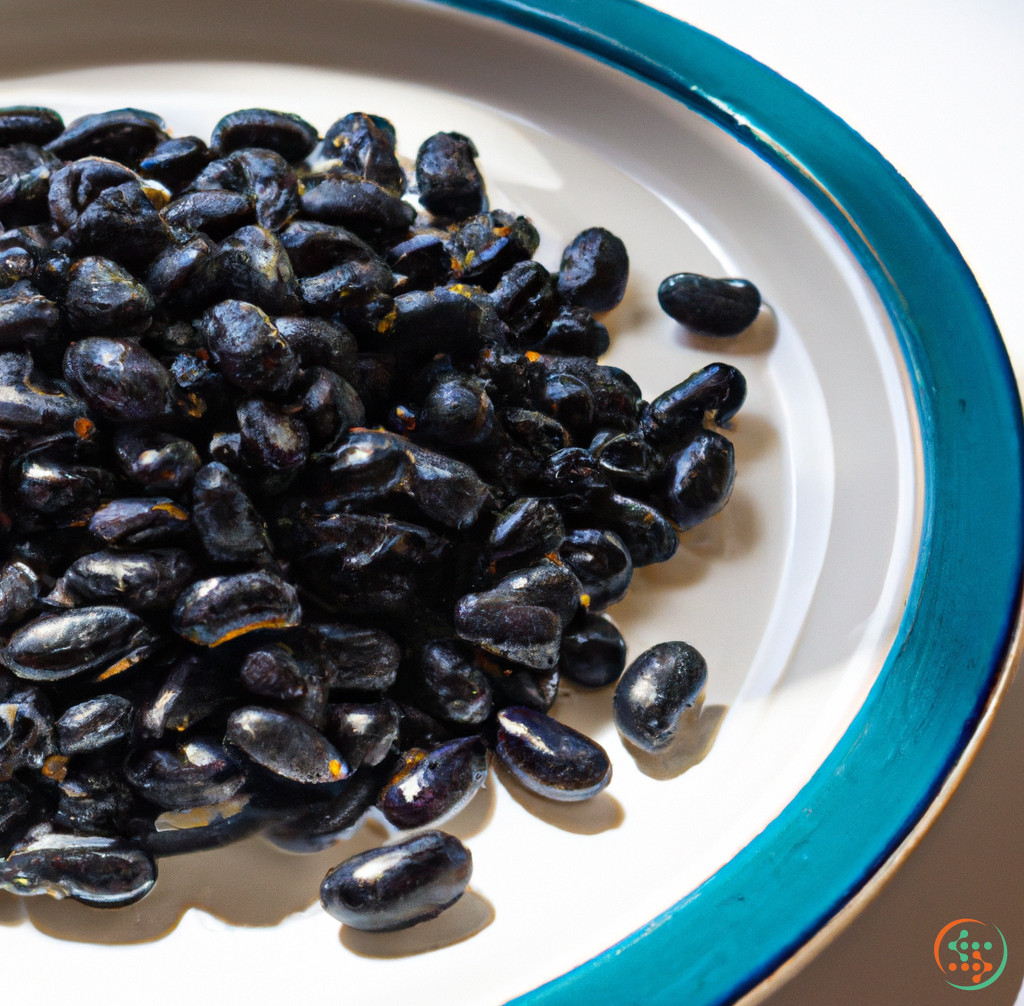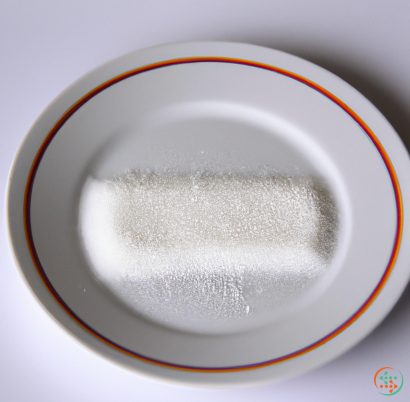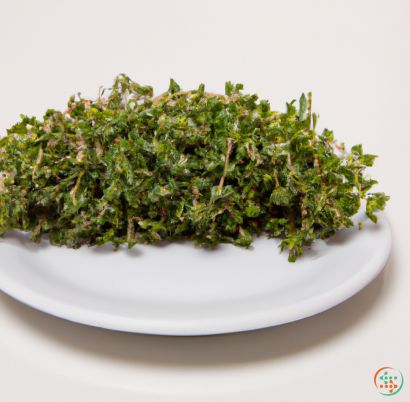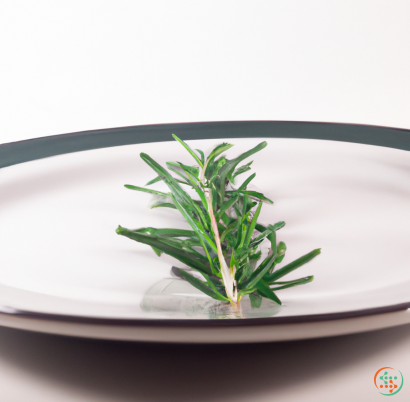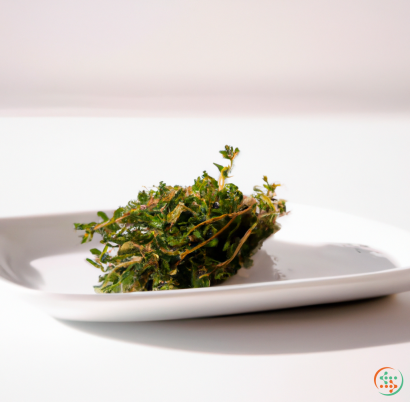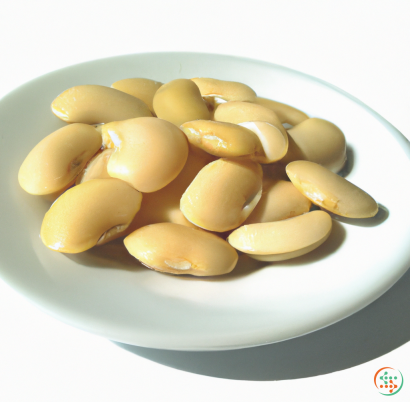Black Beans
What are Black Beans?
Black beans are a type of legume that are native to Central and South America. They are an important part of Latin American cuisine, as well as a staple ingredient in many vegan and vegetarian dishes across the globe. Their potent flavor and creamy texture make them a popular choice for soups, stews, salads, burritos and more. Not only do they add a wonderful flavor and texture to these dishes, they’re also nutrient-dense and full of health benefits.
Nutrition Facts
One cup of cooked black beans contains approximately:
• Calories: 227
• Protein: 15 grams
• Fiber: 15 grams
• Fat: 1 gram
• Carbs: 40 grams
• Magnesium: 60% of the RDA
• Folate: 59% of the RDA
• Phosphorus: 36% of the RDA
• Iron: 35 % of the RDA
• Copper: 18% of the RDA
• Manganese: 18% of the RDA
• Thiamin: 18% of the RDA
• Niacin: 15% of the RDA
• Potassium: 14% of the RDA
• Zinc: 7% of the RDA
• Vitamin B6: 6% of the RDA
Health Benefits
Black beans are low in fat and high in fiber, which makes them beneficial for digestive health and weight management. The fiber helps form bulk in the intestines and moves food through the digestive tract more quickly. This, in turn, can help reduce constipation and regularize bowel movements.
Additionally, black beans are a good source of protein and can be a good way to increase intake without consuming animal protein. Protein is vital for cell health. It helps us build and repair muscle, balance hormones, and process different vitamins and minerals from our food.
The magnesium content of black beans also helps support bone health and relaxes muscles, which is beneficial for muscle spasms, migraines, and PMS. Additionally, the extra protein and iron content makes them a great energy booster, as well as a great option for those who are anemic or have a deficiency in either nutrient.
Moreover, the folate and antioxidants found in black beans can help reduce the risk of stroke, heart disease, and certain types of cancer. Lastly, some research shows that black beans can help reduce cholesterol levels, further lowering your risk of developing cardiovascular issues.
Cooking With Black Beans
Black beans are a versatile ingredient that can be used in a variety of dishes, from salads to soups to burgers. They can also be used to add a creamy and protein-rich texture to many dishes, like rice bowls or burritos. You can also add them to smoothies or blend them into hummus for a unique twist.
To cook with black beans, first rinse them in cold water and remove any clumps. Then place them in a large pot and cover them with a few inches of water, as well as some diced onion, garlic, jalapeños, salt, and bay leaves. Simmer the beans on low heat until they’re tender, then discard the aromatics and drain the beans.
Now you’re ready to use your prepped beans in any recipe of your choice! For a quick and easy meal, try combining cooked black beans with toasted cumin, garlic, and diced tomatoes. Serve it with a side of quinoa or brown rice, and top your dish with some chopped cilantro and a squeeze of lime. Delicious!
Conclusion
In conclusion, black beans are a nutrient-rich, low-fat superfood that can be used to create nutritious and delicious meals. They’re packed with protein, fiber, and a variety of vitamins and minerals that are beneficial for your health. Plus, their versatility makes them a great staple ingredient for many recipes. So, if you’re looking for a nutritious and tasty way to increase your nutrient intake, give black beans a try!
Black beans, or beans of any type, start their journeys with the farmers. After selecting a variety they are usually grown in rows and planted at specific levels of depth. The seeds are planted close together and cultivated during germination to ensure that healthy, strong plants are grown. The farmer needs to attend to the plants with weeding and watering, and will use a combination of mechanical or manual farming practices.
Once the beans have grown to a mature size, the farmers harvest the beans. First, the farmers will use a cultivator to loosen the soil and weeds around the beans before they are manually handpicked. The beans are usually pulled from the ground along with some dirt adhered to them. The farmers then go through and separate the beans from any dirt, stones, or other impurities. The beans may then go through a washing and sorting process where the farmers manually sort the beans by size and color.
The beans are then sent to a processing facility. Here, the beans are inspected again for quality. Any impurities are removed and the beans are tested for pH, moisture content and texture. Based on the results, the beans may be treated for pests, metal contaminants, and food safety. The processed beans are then sent for packaging.
The beans are packaged depending on the end use and the size. For food uses, the beans may be dried or canned. For canned beans, the beans are rehydrated and any liquid or additional ingredients such as salt, oil or vinegar added to them. The beans are then placed in cans and sealed. The cans are heated and pressure-treated to make sure all bacteria or potential contaminants have been eliminated. A vacuum is also created inside of the cans so that the beans stay fresh, and the shelf life is extended.
Once the beans have been packaged, they are shipped to retail stores where they are sold. The beans may be sold dry or canned, pre-cooked, in a variety of flavors, seasoned, and even in pre-packaged kits with the necessary ingredients for creating dishes.
When the beans are purchased from the store and brought home, they are ready to be consumed. Dry beans need to be soaked before they can be cooked, in order to remove impurities and allow for the beans to cook completely in a shorter amount of time. If a recipe calls for pre-cooking the beans, a pot filled with clean water, a pinch of salt, bay leaves, and garlic cloves should be used, and the beans should be boiled for 40-45 minutes or until they are soft to the touch.
Once the beans are cooked, they can then be added to a dish. From soups, stews, salads, or even served with grilled vegetables, black beans can be used in many dishes. The beans can also be mashed and pureed to create some rich, creamy dishes like hummus or black bean dip.
Finally, the dish containing the black beans is served. The dish can be garnished with additional ingredients, such as onions, garlic, tomatoes, jalapeno, cilantro, or avocado, depending on the recipe and everyone’s personal preference.
Not only are black beans packed with nutrition, but their journey from seed to plate inspires the appreciation of the efforts put forth by farmers and the progression of food technology. Every detail in the process has been taken into account in order to ensure that the beans are of nutritional value, safe for consumers, and easily prepared at home.
By having the humble black bean find its way onto your plate, you have helped contribute to maintaining a sustainable agricultural lifestyle, protecting the environment, and supporting rural communities. With all of these aspects taken into consideration, the black bean is one of the most essential ingredients in many culinary creations and will continue to be a pantry staple for years to come.
| Vitamin E | 0.87 mg | |
| Vitamin K | 0.0033 mg | |
| Vitamin B1 | 0.24 mg | |
| Vitamin B2 | 0.06 mg | |
| Vitamin B3 | 0.51 mg | |
| Vitamin B4 | 0.0326 grams | |
| Vitamin B5 | 0.24 mg | |
| Vitamin B6 | 0.07 mg | |
| Vitamin B9 | 0.149 mg |
| Calcium | 0.027 grams |
Daily Value 1.3 g
|
| Iron | 0.0021 grams |
Daily Value 0.018 g
|
| Magnesium | 0.07 grams |
Daily Value 0.4 g
|
| Phosphorus | 0.14 grams |
Daily Value 1.25 g
|
| Potassium | 0.355 grams |
Daily Value 4.7 g
|
| Sodium | 0.001 grams |
Daily Value 2.3 g
|
| Zinc | 0.00112 grams |
Daily Value 0.011 g
|
| Copper | 0.21 mg |
Daily Value 0.9 mg
|
| Manganese | 0.44 mg |
Daily Value 0.0023 g
|
| Selenium | 0.0012 mg |
Daily Value 0.055 mg
|
| Tryptophan | 0.105 grams | |
| Threonine | 0.373 grams | |
| Isoleucine | 0.391 grams | |
| Leucine | 0.708 grams | |
| Lysine | 0.608 grams | |
| Methionine | 0.133 grams | |
| Cystine | 0.096 grams | |
| Phenylalanine | 0.479 grams | |
| Tyrosine | 0.25 grams | |
| Valine | 0.464 grams | |
| Arginine | 0.549 grams | |
| Histidine | 0.247 grams | |
| Alanine | 0.372 grams | |
| Aspartic Acid | 1.072 grams | |
| Glutamic Acid | 1.351 grams | |
| Glycine | 0.346 grams | |
| Proline | 0.376 grams | |
| Serine | 0.482 grams |
| Total Sugars | 0.131141 grams |
per 100g
|
| Palmitic acid (16:0) | 0.13 grams |
|
| Stearic acid (18:0) | 0.01 grams |
|
| Total Saturated fatty acids: | 0.14 g | |
| Oleic acid (18:1) | 0.05 grams |
|
| Total Monounsaturated fatty acids: | 0.05 g | |
| Linolenic acid (18:3) | 0.11 grams |
|
| Linoleic acid (18:2) | 0.13 grams |
|
| Total Polyunsaturated fatty acids: | 0.24 g | |
